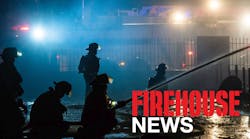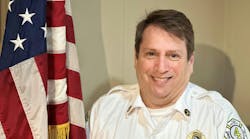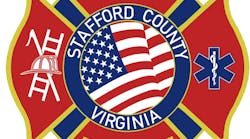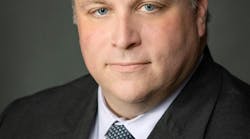The state will begin sending out bills for fire protection this month to nearly a million rural California households, including nearly 30,000 in the central San Joaquin Valley.
The fee, up to $150 per home, comes a year after the Legislature approved the charge as a way to offset the growing expense of firefighting.
The state Department of Forestry and Fire Protection has seen its budget slashed in recent years despite California wildfires becoming increasingly menacing and more homes put in jeopardy.
But even as the first-time bills make their way to rural mailboxes, concerns about the new fire fee persist.
Many residents aren't expecting the invoice and either won't be prepared to make the payment or will dismiss it as junk mail, critics say. Meanwhile, anti-tax groups continue to denounce the fee as illegal and threaten court action.
On Tuesday, the Howard Jarvis Taxpayers Association said it's waiting for the bills to be paid before suing to have the charges refunded.
But barring a successful challenge, state officials expect to generate a windfall of cash that they say will improve fire service for rural Californians.
"We've made cuts significantly in the past few years," said Cal Fire spokesman Daniel Berlant, noting reductions in seasonal firefighters and the closing of a Fresno County airbase. "The need for this revenue source is there."
Cal Fire's budget is set at $996 million for the fiscal year that began in July, more than $30 million less than what it was three years ago, according to state officials.
The projected $84 million that will be generated from the new fee annually will go specifically toward fire prevention, such as brush-clearing and public education.
"Preventing a fire is a lot less costly than putting it out," Berlant said.
Households on the hook for the new fee are those in "state responsibility areas," where Cal Fire is in charge of fire protection -- not a municipal fire department. Statewide, that is 825,488 homes.
In Fresno County, 9,845 homes will be subject to the fee, mostly in the foothills. In Madera County, it's 13,727 homes -- most in the Oakhurst/Coarsegold area; 6,364 in Tulare County; and 18 in Kings County.
The $150 fee applies to each "habitable structure." Structures that reside within a fire district, meaning the property is already assessed a charge for local fire service, will get $35 off the state fee.
Chris Mathys, a Fresno businessman and tax critic who has property in a state-protected fire area, said it's already expensive to live in rural areas, citing long commutes and no city-provided services. He doesn't think another fee is such a good idea.
"It's just going to make the cost for a farmer or someone who has chosen a rural lifestyle more expensive," he said.
The state Board of Equalization plans to begin mailing the new bills this month, proceeding alphabetically by county, and continuing through the end of the year.
The bill will be similar to an annual vehicle license fee invoice, requiring payment within a short time after receipt.
George Runner, a former Republican senator who represents the Fresno area on the Board of Equalization, also is leery of the fee. He said a fee should not come without expanded service.
"There's no new equipment. There's no new enhanced fire protection," he said.
As a member of the state's tax-collection panel, Runner has an obligation to levy the charge, but he said he is trying to do it as considerately as possible. He said he has pushed for notices to be mailed out in advance of the bills because a lot of homeowners aren't aware that the bills are coming.
Many of the notices, however, will likely arrive just days before the bill because of the tight timeline for collection.
Runner said he will sign on to the lawsuit against the fee.
The Howard Jarvis Taxpayers Association opposes the charge, according to director of legal affairs Timothy Bittle, because it contends the fee actually is a tax, which requires a two-thirds vote of the Legislature or approval from voters.
A fee, according to the group, must directly benefit fee-payers. That connection, the group claims, is tenuous.
Gov. Jerry Brown and many Democratic lawmakers, however, have argued that state taxpayers have long subsidized firefighting efforts in rural areas prone to fire. That effort, they've said, needs to be compensated.
Copyright 2012 - The Fresno Bee, Calif.
McClatchy-Tribune News Service





